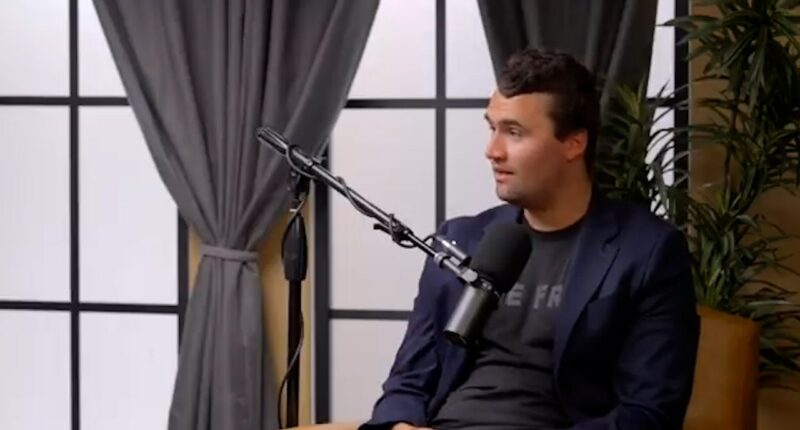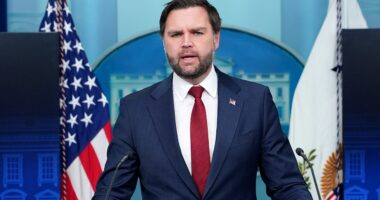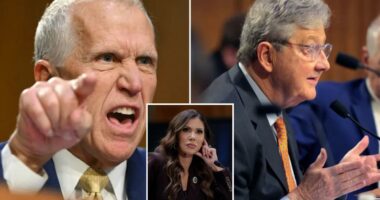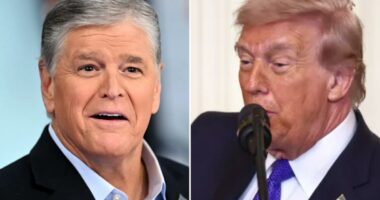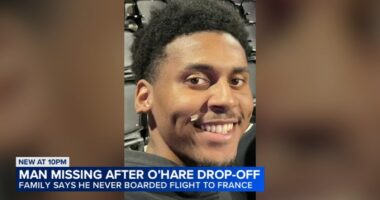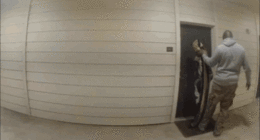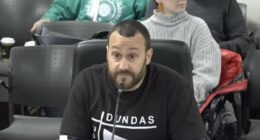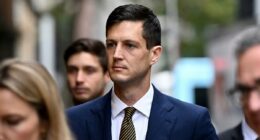Share this @internewscast.com
Charlie Kirk, the founder of Turning Point USA and a vocal proponent of conservative values and Christianity, expressed his wish to be remembered for his bravery in upholding his Christian beliefs, just months before his untimely death. This statement comes from an interview clip that is now widely shared online.
Kirk, 31, was fatally shot while speaking at a Turning Point USA event at Utah Valley University on Wednesday.
During a guest appearance on “The Iced Coffee Hour” podcast on June 29, host Jack Selby asked Kirk to consider what he would like to be remembered for if everything were to “completely go away.”
“If I die?” Kirk responded, before Selby clarified.
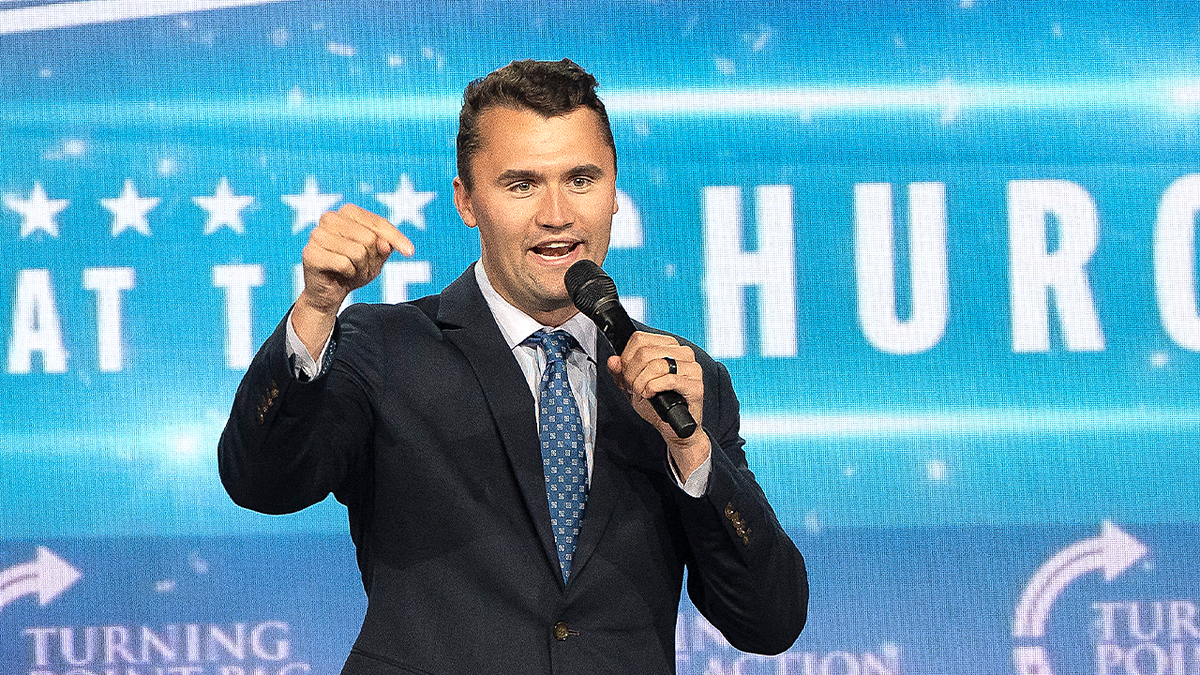
Charlie Kirk, executive director of Turning Point USA, takes the stage before a discussion at the Chase the Vote event of Turning Point Action at Generation Church in Mesa, Arizona, on September 4, 2024. (REBECCA NOBLE/AFP via Getty Images)
Since his unfortunate passing, the interview has drawn significant attention, with many social media users reflecting on how Kirk’s statements encapsulated his lifelong advocacy and the causes he supported.
“I want to be closer to God because of @charliekirk11,” one user said on X. “Your death will fuel millions back to Christ. “
“He wasn’t afraid or ashamed to talk about his faith,” another user said on X. “Watching him makes me want to be even more bold!”
“Charlie exemplifies living a life guided by faith,” an Instagram user remarked. “He was aware of the dangers inherent in traveling to various campuses across the nation to convey the truth, a decision that ultimately cost him his life.”
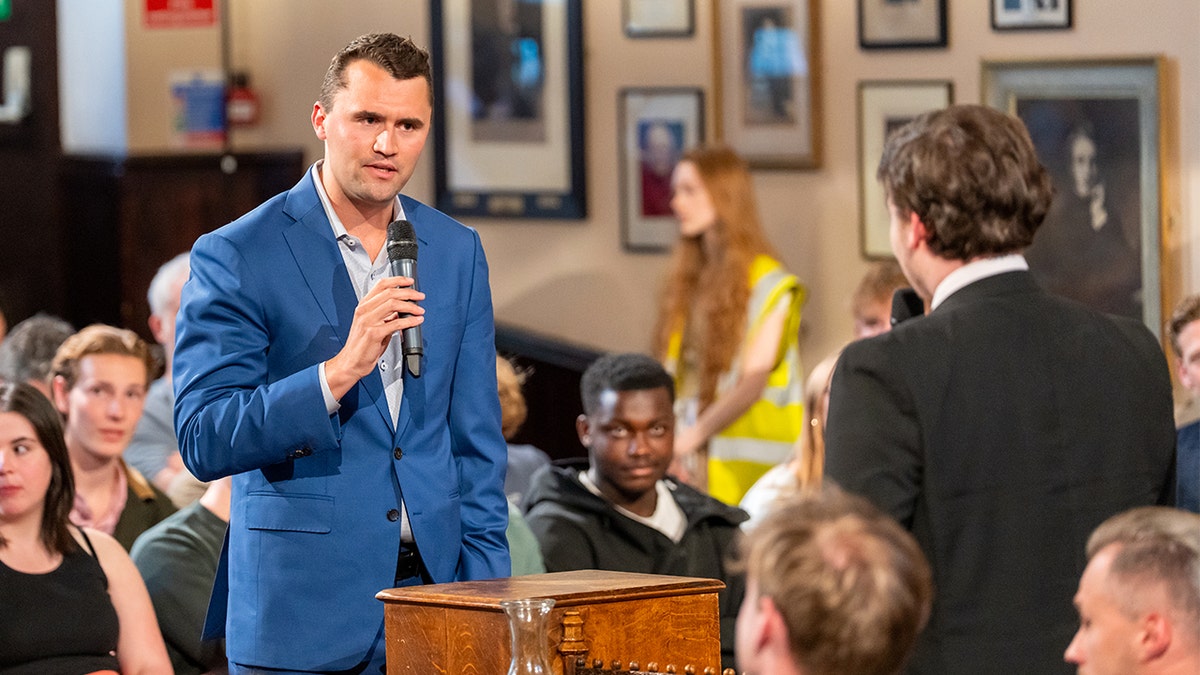
On May 19, 2025, Charlie Kirk engages in a debate with students at The Cambridge Union in Cambridge, Cambridgeshire. (Nordin Catic/Getty Images for The Cambridge Union)
Kirk was known for weaving faith in his political work and activism. In 2012, at just 18 years old, he co-founded Turning Point USA, a nonprofit organization that quickly grew into one of the most influential youth-focused groups in conservative politics.
His rise to national visibility was fueled largely by the group’s events on college campuses, where he promoted conservative values to students.
